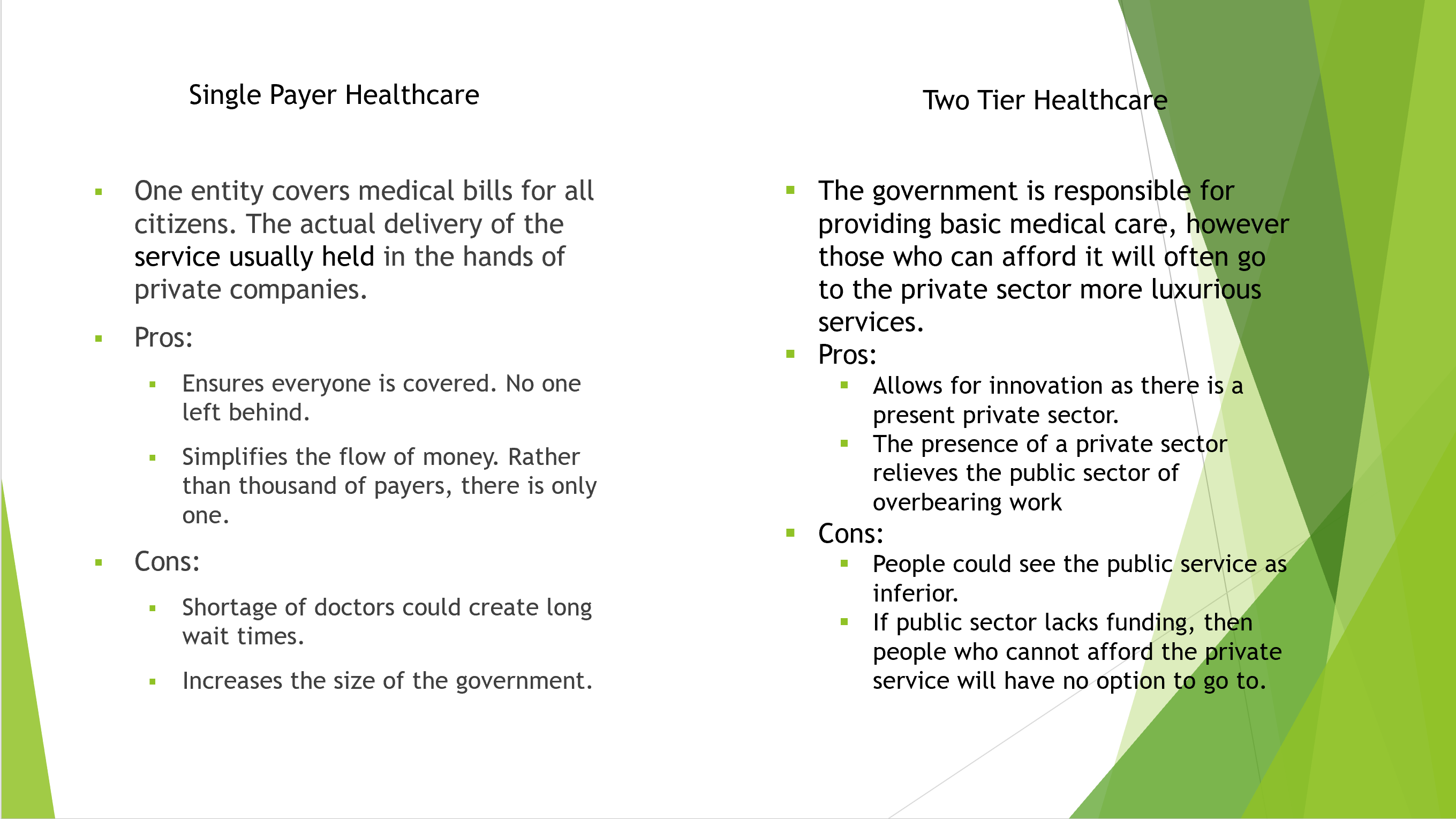Costs Clinton campaigned for president on a platform that included healthcare reform in 1992. Comparable proposals had actually been made previously, as universal health care was likewise part of the platform of Jesse Jackson's failed 1988 presidential quote. Quickly upon arriving in workplace, Clinton developed the Task Force on National Healthcare Reform with his wife Hillary Rodham Clinton working as its chair.
The bill consulted with opposition from policymakers, insurance business, and doctor groups, and did not pass. The failure of Clinton's efforts led numerous officials to view health care reform as an issue too complicated and too contentious to run the risk of losing any political impact over (how much does medicaid pay for home health care). In contrast to the Health Security Act, Agent Jim McDermott (D-WA) presented the similarly called American Health Security Act in 1993, which would have developed a single-payer system - what is required in the florida employee health care access act?.
In the early twenty-first century, state and federal authorities showed renewed interest in expanding health care protection. In 2003 Agent John Conyers Jr. (D-MI) initially introduced the United States National Medical Insurance Act, which required a single-payer healthcare system, but the costs got neither a dispute nor a vote on the House floor.
While the federal government took little action towards attaining universal healthcare, state lawmakers experienced success at broadening health coverage in Massachusetts in 2006. The Massachusetts system mandated that every citizen obtain medical insurance or pay fines. The system is in some cases called "Romneycare" in recommendation to Mitt Romney, who functioned as governor throughout its application.
Our What Is A Health Care Deductible PDFs
Experts have actually associated the success of the Massachusetts system to government subsidies, which enabled more individuals to acquire insurance, and to the program's insurance coverage required, which interested insurer since they obtained more customers. In turn, having more individuals contribute to the fund drove prices down. In 2008 Barack Obama campaigned on healthcare reform in his quote for president, drawing heavily on the Massachusetts model.
The efforts of his administration led to the passage of the Client Defense and Affordable Care Act (ACA), also described as "Obamacare," in 2010. According to the Centers for Illness Control and Avoidance, the portion of Americans who did not have medical insurance dropped from 16 percent in 2010 prior to the law entered into result to 8.6 percent in the last months of Obama's presidency.
Alternatively, some critics considered the overhaul of the health care system inadequate, contending that a single-payer system would much better serve the population. Vermont senator Bernie Sanders, whose 2016 presidential bid highlighted health care reform, presented the Medicare for All Act of 2017, a proposal to expand government health coverage to all people and citizens.

Among the bill's cosponsors, Senators Cory Booker (D-NJ), Kamala Harris (D-CA), Kirsten Gillibrand (D-NY), Elizabeth Warren (D-MA), and Sanders himself all signed up with the field of contenders for the Democratic Celebration's 2020 presidential election. In July 2018 more than seventy Democratic members of your house of Representatives formed the Medicare for All Caucus to sponsor briefings on health care reform.
The A Health Care Professional Is Caring For A Patient Who Is About To Begin Taking Isoniazid Diaries

As support for a single-payer system has actually grown among progressive factions within the Democratic Party, some critics, consisting of fellow Democrats, have argued that a health care system without a function for personal insurance coverage might cause a decline in quality of service. An often mentioned study carried out by scientists at Harvard Medical School and Cambridge Health Alliance in 2009 identified that nearly 45,000 Americans die each year due to issues associated with their lack of health insurance coverage.
By ensuring that residents and locals have access to inexpensive medical services, universal health care can improve total public health by dealing with the ill, promoting preventative care, and providing standard care to all patients. Critics warn, however, that universal healthcare could cause decreased quality of care and long haul times.
In 2018 the decision of England's National Health Service to withdraw life assistance from young child Alfie Evans versus the moms and dads' wishes https://the-neurobiology-of-cocaine.drug-rehab-fl-resource.com/ triggered an international debate over how choices are made in a single-payer system. In response to concerns over rationing, some medical specialists and economists assert that allocating exists in all healthcare systems due to the fact that resources are constantly limited.
Disparities in medical treatment throughout the United States likewise suggest that access to medical services can be dependent on where patients live and where they are utilized in addition to market factors such as race, gender, and ethnic background. Some health care experts have actually argued that the Medicare system in the United States can be defined as a specific type of health care rationing due to the fact that the program only provides coverage to people ages 65 or older, people with particular disabilities, and individuals with End-Stage Kidney Illness.
The Ultimate Guide To What Is Preventive Health Care
Numerous critics of universal health care point out the potential expenses of implementation as the primary reason for their opposition. Some critics of universal health care have actually voiced issue that a single-payer system would cause individuals seeking unnecessary treatments and that the overuse of services would drive overall expenses up.
In 2018 scientists at the Mercatus Center at George Mason University carried out a research study to identify the expense of carrying out the Medicare for All Act of 2017. Challengers of single-payer health care initially celebrated the outcomes, which revealed Sanders's plan would cost $32.6 trillion over 10 years. However, Sanders responded by noting that report's total indicated savings of $2 trillion compared to spending projections without carrying out reforms.
A 2003 research study in the New England Journal of Medication discovered that 31 percent of US health costs approached unneeded administrative expenses. Reducing these costs could enable minimal resources to be used better. The Mercatus Center report cautions, nevertheless, that government programs tend to accumulate considerable administrative expenses which government-run health care may likely sustain comparable expenses, making projected savings unsure.
WASHINGTON (AP) The Current on the midterm elections (all times local):7 p.m. Republican U.S. Rep. Steve Knight has conceded the last GOP-held Home seat anchored in Los Angeles County. Democrat Katie Hill holds a 2-point lead, and Knight said Wednesday that the citizens have spoken. Thousands of tallies stay to be counted, and The Associated Press has not called the race (which of the following is not a result of the commodification of health care?).
The Single Strategy To Use For When An Employee Takes Fmla Leave
hopscotched across the post-Civil War South, invading the makeshift camps where lots of thousands of freshly released African-Americans had taken sanctuary however leaving surrounding white neighborhoods comparatively unharmed. This pattern of condition was no secret: In the late 1860s, physicians had yet to discover infections, however they understood that bad nutrition made individuals more susceptible to illness and that poor sanitation added to the spread of disease.
Smallpox was not the only health variation facing the newly emancipated, who at the close of the Civil War faced a significantly greater death rate than that of whites. Despite their urgent pleas for support, white leaders were deeply ambivalent about stepping in. They fretted about black upsurges spilling into their own communities and wanted the previously oppressed to be healthy enough to return to plantation work.
Congress developed the medical division of the Freedmen's Bureau the country's first federal healthcare program to address the health crisis, but authorities deployed just 120 approximately doctors across the war-torn South, then neglected those medical professionals' pleas for personnel and devices. They put up more than 40 health centers however prematurely shuttered many of them.